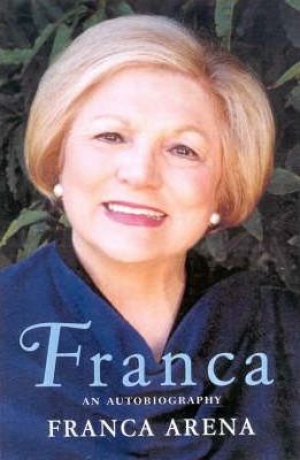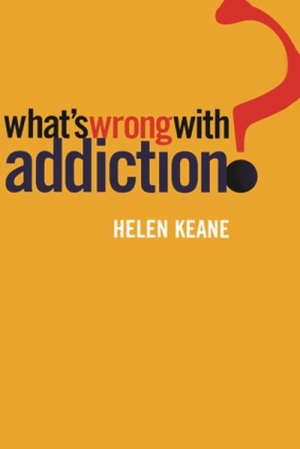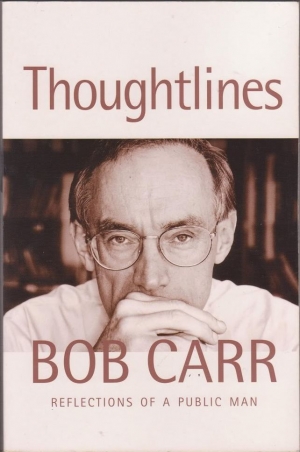Archive
La Trobe University Essay | 'On September 11' by Morag Fraser
Primo Levi, in two interviews given almost twenty years ago*, set a standard of critical sympathy that is not only exemplary, but peculiarly apt to the fraught debate about the post-September 11 world and the USA’s place and reputation within it.
... (read more)This summer, browsers will probably find these chronicles of Eddie Gilbert and Mark Waugh snuggled close together in bookshops. Both, after all, are biographies of Australian cricketers, written by journalists, and published by firms with strong sporting backlists. But their proximity will be misleading. Cricket contains few less similar careers, and has generated few more different narrative styles. Indeed, reading them consecutively is to appreciate how stealthily our understanding of ‘biography’ has been elasticised.
... (read more)Helen Thomson reviews ‘See How It Runs: Nimrod and the New Wave’ by Julian Meyrick
It is snatching some kind of victory out of defeat, I suppose, to write a Ph.D. thesis about the rise and fall of a theatre company, and Julian Meyrick has successfully transformed thesis into book. This has been achieved mainly through very good writing; lively, intelligent and uncluttered by jargon. The formal paraphernalia of the thesis – notes, appendices, statistics, bibliography and index – are not only useful in themselves, but crucial evidence for the argument.
... (read more)ABR welcomes concise and pertinent letters. Correspondents should note that letters may be edited. They must reach us by the middle of the current month. Emailed letters must include a telephone number for verification.
Inga Clendinnen responds to John Hirst
Dear Editor,
I want to respond to John Hirst’s rather avuncular dismissal of Rosemary Neill’s White Out (ABR, August 2002). John is an old friend, and I have often relied on his goodwill and good sense, but I disagreed with just about every sentence of his evaluation of O’Neill’s excellent book. In fact, I think his review exemplifies the kind of predetermined politicised response that Neill and other engaged analysts of the Aboriginal condition are up against. Some Aborigines and whites have been ‘speaking the truth’ about the devastating disintegration of some Aboriginal communities for years. What is ‘new’ is that more of us are beginning to turn from our absorbing in-house squabbles to listen to what they are saying. We are being made to hear that the earnest diagnoses and recommendations we have been making over the last three decades appear to be mistaken. It is not only that Aborigines are dying earlier. Now they are suffering more before they die.
... (read more)Craig Sherborne reviews ‘Franca: My story’ by Franca Arena and ‘Speaking for Myself Again: Four years with Labor and beyond’ by Cheryl Kernot
If Cheryl Kernot writes another book – and if Speaking for Myself Again is anything to go by, you had better hope she doesn’t – her publishers should at the very least make sure the punctuation police do their job. It appears they didn’t even show up to the scene of the accident this time. Exclamation marks are strewn throughout the work. Each time Kernot wants to bitterly labour a point, up pops an exclamation mark, as if she’s hitting the keyboard and cursing, ‘Take that you bastards’. Thus we get: ‘And some people can be so rude!’; ‘Women have sustained me!’; ‘I could write a whole book on my experiences with the media. Perhaps I will!’; and ‘Opinion rules!’ In a teen diary, that’s fine, but not in a book by a former senior federal parliamentarian.
... (read more)Desmond Manderson reviews ‘What’s Wrong with Addiction? by Helen Keane and ‘Modernising Australia’s Drug Policy’ by Alex Wodak and Timothy Moore
The current legal regime for the regulation – I use the term advisedly – of drugs has many unintended consequences. One of its minor tragedies is the number of thinkers and activists whose valuable energies are thus diverted to the Sisyphean labour of undoing it. So many words have now been written on the failure of prohibition that there is surely little more to be added. More than a decade ago, former Senator Peter Baume expressed it well: ‘Our strategies seek to prevent the production of certain designated illegal substances, and fail to do so; they seek to prevent the importation of substances, and fail to do so; they seek to prevent the distribution of substances, and fail to do so; they seek to prevent the sale and use of substances, and fail to do so.’ Instead, our laws and policies make all these activities that much more dangerous, more corrupt, more poisonous and more destructive.
... (read more)Neal Blewett reviews 'Thoughtlines: Reflections of a public man' by Bob Carr
As W.H. Auden observed more than forty years ago: ‘To the man-in-the-street, who, I’m sorry to say, / Is a keen observer of life, / The word ‘Intellectual’ suggests straight away / A man who’s untrue to his wife.’ Perhaps such popular attitudes explain why intellectuals as politicians are rare in the bear pit of modern Australian parliaments ...
... (read more)ABR welcomes concise and pertinent letters. Correspondents should note that letters may be edited. They must reach us by the middle of the current month. Emailed letters must include a telephone number for verification.
... (read more)I
Dad’s new car was that Ford Customline
wide as a bed and hissing with energy.
We’ll drive carefully, we promised
and took turns to burn up the bitumen
right the way to Helidon.
It never hissed after that. It sighed.
Sometimes guilt takes fifty years
before the blister breaks.
The Ford was traded in after only four years.
Dad’s silence was the rub.
... (read more)




